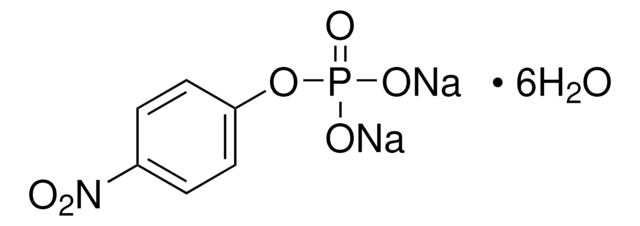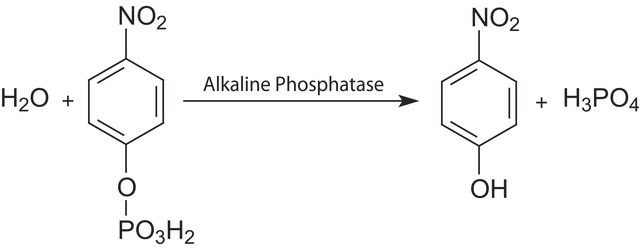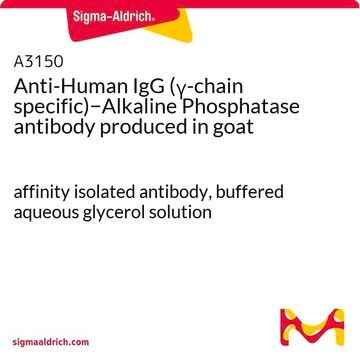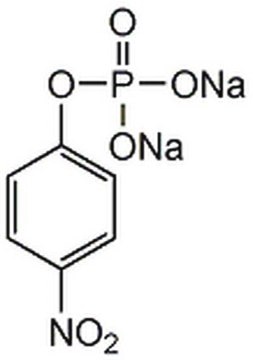N9389
4-Nitrophenyl phosphate disodium salt hexahydrate
chromogenic, tablet
Synonym(s):
p-Nitrophenyl phosphate disodium hexahydrate, Disodium 4-nitrophenyl phosphate hexahydrate, di-Sodium 4-nitrophenyl phosphate, pNPP disodium hexahydrate
About This Item
Recommended Products
product name
4-Nitrophenyl phosphate disodium salt hexahydrate, tablet
description
5 mg substrate per tablet
Quality Level
form
tablet
fluorescence
λex 310 nm (pH 7.1)
λex 399 nm (Reaction Product)
storage temp.
−20°C
SMILES string
O.O.O.O.O.O.[Na+].[Na+].[O-][N+](=O)c1ccc(OP([O-])([O-])=O)cc1
InChI
1S/C6H6NO6P.2Na.6H2O/c8-7(9)5-1-3-6(4-2-5)13-14(10,11)12;;;;;;;;/h1-4H,(H2,10,11,12);;;6*1H2/q;2*+1;;;;;;/p-2
InChI key
KAKKHKRHCKCAGH-UHFFFAOYSA-L
Looking for similar products? Visit Product Comparison Guide
Related Categories
General description
Application
- enzyme-linked immunosorbent assay (ELISA) to visualize glycoprotein VI (GPVI) binding to collagen type I (Col I)
- enzymatic color reaction for semi-quantitative measurement of allergen-specific IgE by ELISA
- alkaline phosphatase assay
wgk_germany
WGK 3
flash_point_f
Not applicable
flash_point_c
Not applicable
ppe
Eyeshields, Gloves, type N95 (US)
Certificates of Analysis (COA)
Search for Certificates of Analysis (COA) by entering the products Lot/Batch Number. Lot and Batch Numbers can be found on a product’s label following the words ‘Lot’ or ‘Batch’.
Already Own This Product?
Find documentation for the products that you have recently purchased in the Document Library.
Customers Also Viewed
Articles
Nitroblue Tetrazolium (NBT) is used with the alkaline phosphatase substrate 5-Bromo- 4-Chloro-3-Indolyl Phosphate (BCIP) in western blotting and immunohistological staining procedures. These substrate systems produce an insoluble NBT diformazan end product that is blue to purple in color and can be observed visually.
Our team of scientists has experience in all areas of research including Life Science, Material Science, Chemical Synthesis, Chromatography, Analytical and many others.
Contact Technical Service




